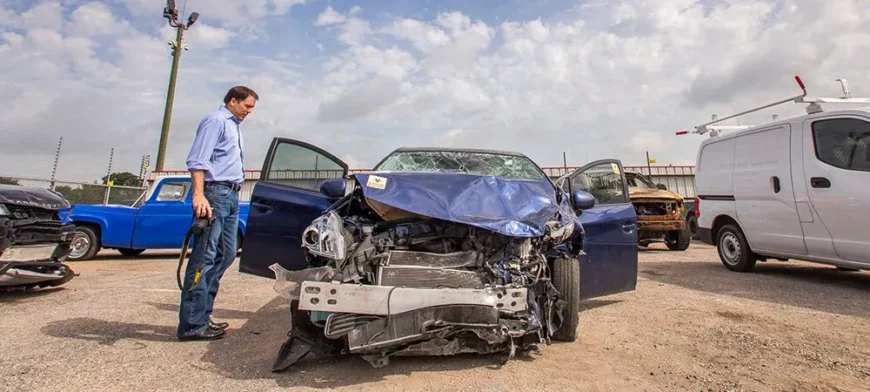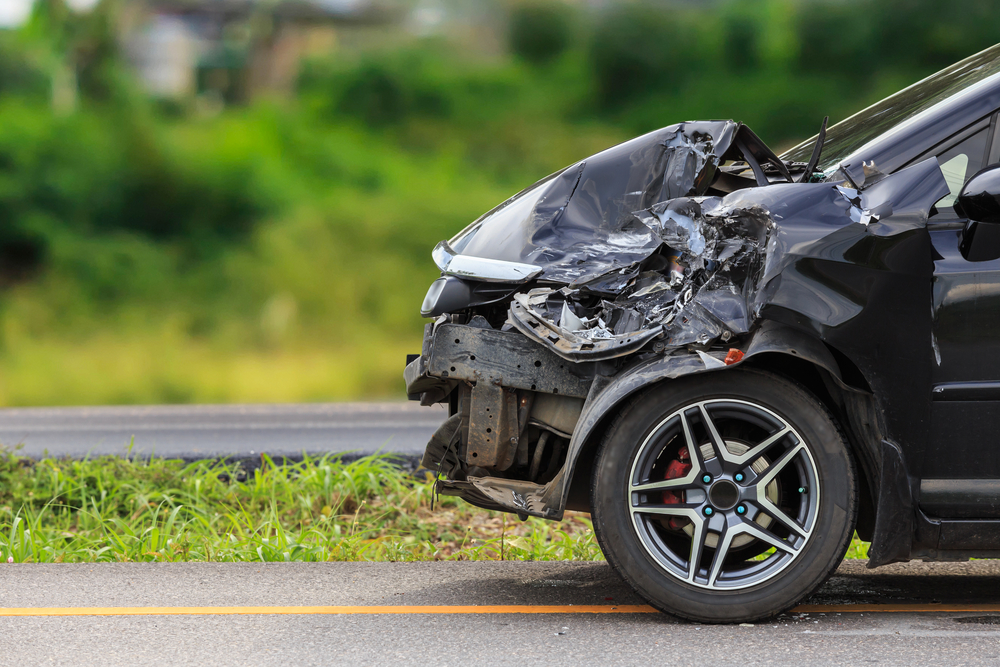While there are many accidents on the roads every day, you may not know what to do if you’re in that situation. Whether it’s your first crash or you’ve been in one before, knowing what to do can help you keep a clear head. It can also help you take the right actions when pursuing compensation from the at-fault driver.
After a car accident, take the following steps to protect yourself.
Remain on the Scene and Call the Police

In Texas, you are required to remain at the scene of the accident if there is $1,000 in damages or more, or if there are any injuries or fatalities. You’ll also want to call the police so they can file a police report.
By calling 911, you’ll also get emergency medical services to treat your injuries. Even if you don’t think you’re injured, it is best to take proper precautions and have a full medical examination. The police report and your medical records will also serve as evidence when you make your car accident claim.
Exchange Contact and Insurance Information
You are also required by state laws to exchange information with the other driver. The police will also get this information, but some of it can slip through the cracks. You will not want to lose that information if the other driver is at fault since you will file your claim with their insurance company. Get the driver’s phone number, insurance provider, policy number, and the make, model, color, and license plate number of their vehicle.
Gather Any Evidence
Take photos and videos of the entire accident scene, including skid marks or broken glass. If anyone witnessed what happened, it’s ideal to get their contact information and have them make a statement. You can use your phone to record everything you can remember before, during, and immediately after the crash. Your memory may fade and something small you may have recalled could be very useful in proving that the other driver was at fault.
Reach Out to Your Insurer

Most auto insurance policies require you to notify your carrier even if you are not responsible for the accident. It’s also quite useful if the other driver tries to file a claim with your insurance company. This will start an investigation on both sides to determine the fault of all involved drivers.
You will likely get a call from the other driver’s insurance company, but you are not legally obligated to speak to them. If you have an attorney, they will represent you when dealing with the defendant’s insurer.
Hire an Attorney Who Represents Car Accident Victims
There are many qualified personal injury attorneys in your area. However, you should make sure that you hire an attorney who has experience representing car accident victims. They will launch an investigation, gather evidence, negotiate with the insurance company, and be your legal advocate throughout this process.
Attorneys can easily spot when the initial settlement offer is too low and help you fight for what is fair. This ensures you won’t get stuck in debt because of a negligent driver.
Ensuring Safety and Legal Compliance Post-Accident
After a car accident, the priority is ensuring everyone’s safety and adhering to legal requirements. In Texas, staying at the accident scene is mandatory if the damages exceed $1,000, or there are injuries or fatalities. Promptly calling 911 is crucial, not just for legal compliance but also to receive any necessary medical attention. This section emphasizes the importance of remaining at the scene, contacting the police, and seeking medical evaluation even if injuries are not immediately apparent. This initial response is not only a legal obligation but also a critical step in safeguarding your well-being and establishing a record for future claims.
Exchanging Vital Information with Involved Parties

Exchanging information with the other driver is a legal necessity in the aftermath of a car accident. This includes sharing contact details, insurance information, and vehicle specifics. This section will guide readers on the type of information to collect and the importance of doing so meticulously. It underlines that while police will gather this information, having your own records ensures you have all the necessary details for insurance claims, especially if the other driver is at fault. This part of the process is crucial in laying the groundwork for any future compensation claims.
Documenting the Accident Scene and Gathering Evidence
Documenting the accident scene comprehensively can significantly impact the outcome of insurance claims or legal proceedings. This section advises on taking photographs and videos of the scene, including any relevant details like skid marks or vehicle damage. It also highlights the value of eyewitness accounts and the importance of recording your recollection of events as soon as possible. By gathering this evidence, you strengthen your position in establishing the facts of the accident, which is invaluable in proving fault and supporting your claim.
Navigating Insurance and Legal Processes
The final steps involve dealing with insurance companies and possibly legal representation. Notifying your insurance provider is a requirement, even if you’re not at fault. This section discusses the importance of early communication with your insurer and the potential interactions with the other party’s insurance company. Furthermore, it emphasizes the benefits of hiring an attorney experienced in car accident cases, who can guide you through the process, from negotiating with insurance companies to ensuring you receive fair compensation for damages and injuries. The role of a skilled attorney is pivotal in navigating the complex aftermath of a car accident.
Understanding and Protecting Your Rights Post-Accident

In the aftermath of a car accident, it’s crucial to understand and protect your legal rights. This section provides guidance on how to interact with insurance companies, including the significance of being cautious when speaking to the at-fault driver’s insurer. It also explains your rights regarding not being obligated to provide them with any statements. The importance of consulting with an attorney to safeguard your interests is underscored here. An attorney can help you understand your rights, represent you in dealings with insurance companies, and ensure you don’t settle for less than what is fair. This section aims to empower readers with the knowledge to navigate post-accident scenarios effectively, avoiding common pitfalls that can jeopardize their rights and entitlements.




